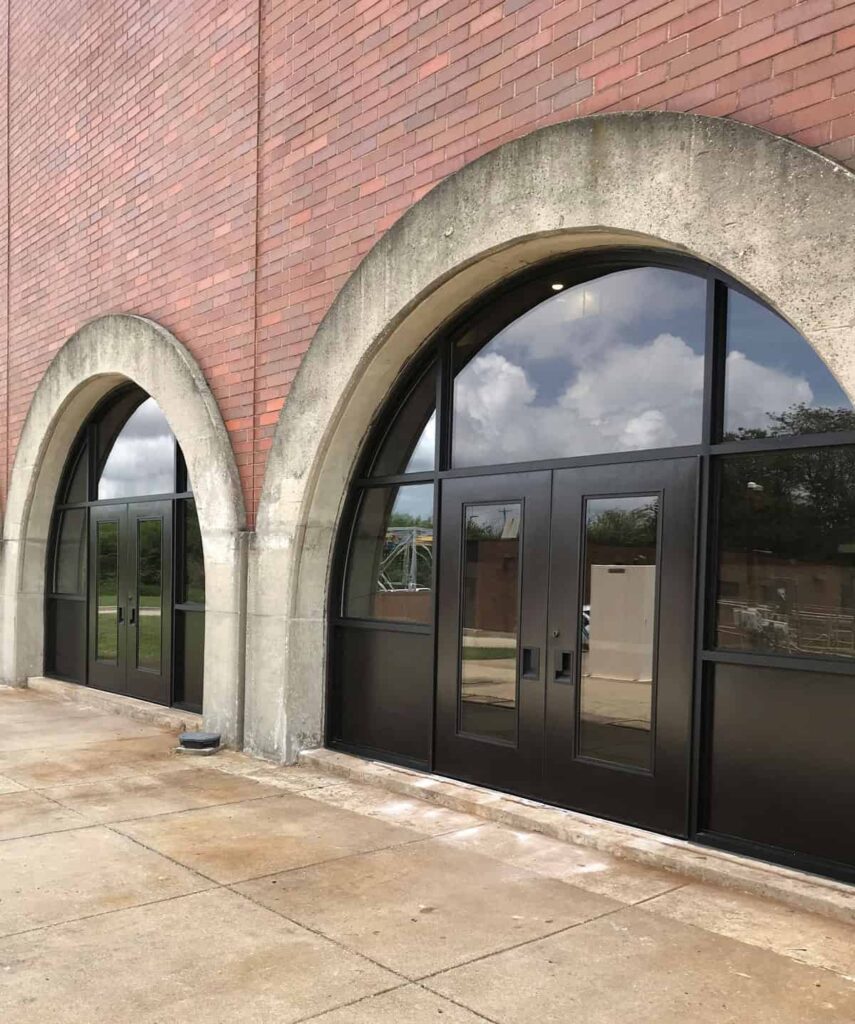Explore More
Winning Where Others Don’t Bother: Special-Lite’s Low-Profile Play to Win
Discover how Special-Lite leads the niche door market by turning regulatory compliance, customisation and operational excellence into lasting business success

Every year, building owners across America face a quiet compliance threat that costs them thousands: non-compliant doors. First-time violations for failing ADA door standards can trigger penalties up to $75,000, with repeat violations reaching $150,000. Yet most business owners miss the opportunity hiding in this regulatory maze – the niche manufacturers who’ve built empires by solving these unsexy compliance problems.
Special-Lite, based in Decatur, Michigan, has spent decades carving out market share by zeroing in on overlooked commercial needs. Instead of chasing flashy architectural trends, they’ve focused on the mundane details that keep facility managers awake at night: ADA compliance, corrosion resistance and the kind of durability that prevents costly project delays.
The Power of Minor Features
Special-Lite’s latest move shows this approach in action. The company just released a new 10-inch by 31-inch ADA Vision Lite Kit for their Double-Acting Traffic Doors – a product enhancement that sounds trivial but addresses a critical compliance gap in high-traffic commercial environments.
‘We are committed to delivering products that not only perform, but also support the needs of accessibility,’ said Alex Esposito, President and COO of Special-Lite. ‘The addition of this ADA-compliant vision lite kit ensures that our Double-Acting Traffic Doors remain a top choice for a broad range of commercial and institutional applications.’
The genius isn’t in the product itself – it’s recognising that institutional buyers like schools, hospitals and retailers can’t afford mistakes on compliance. When a school district faces an ADA audit or a hospital needs doors that meet strict regulatory standards, they’ll pay premium prices for certainty over savings. These buyers don’t experiment with unproven suppliers when legal liability is on the line.
Winning Where Others Don’t Bother
While competitors chase high-volume commodity sales, Special-Lite has tuned its production for legally important specs that bigger players often ignore. Their Double-Acting Traffic Doors, launched in August 2024, feature exclusive double-acting gravity pivot hinges and can be manufactured in made-to-order sizes with various finishes.
This manufacturing flexibility creates recurring institutional orders. When a hospital expansion needs doors that match existing installations, or when a school district requires specific colour coordination across multiple buildings, Special-Lite’s customisation capability becomes a competitive moat. It’s a strategy that mirrors what successful business builders in other sectors use to create lasting customer relationships.
The company has also invested in proprietary waterproof, high-density injected foam cores that offer moisture resistance and lighter weight than traditional wood cores. These technical improvements may seem incremental, but they translate directly into lower maintenance costs for facility managers – a selling point that justifies higher initial prices.
Engineering Margin into the Mundane
Special-Lite’s margins stay healthy because they’ve identified features that institutional buyers value beyond initial cost. Their corrosion-resistant frames, waterproof foam cores and easy-clean surfaces aren’t glamorous, but they quietly appeal to buyers focused on total cost of ownership.
Consider the economics: a standard commercial door might cost $300-500, but when you factor in maintenance, replacement schedules and potential compliance failures, facility managers will pay $800-1,200 for doors that eliminate these headaches. Special-Lite has built its business model around capturing this premium.
The company offers multiple face sheet options – from their exclusive SpecLite 3 FRP to realistic wood grain finishes and stainless steel. This variety isn’t just aesthetic flexibility; it’s a strategy to increase order values and create specification lock-in effects with architects and facility managers.
Customisation and ‘Spec Lock’ as Defence
Special-Lite’s customisation capabilities create friction for competitors trying to displace them on existing projects. Once a facility specifies particular colours, finishes or accessories, switching suppliers becomes expensive and time-consuming. Compliance requirements make this switching cost even higher – no facility manager wants to risk regulatory violations by changing to an unproven alternative.
The company’s hybrid FRP and aluminium construction options, combined with various finish selections, become what the industry calls ‘table stakes’ – basic requirements that keep competitors constantly catching up rather than moving ahead. This defensive approach echoes successful service businesses that build moats through operational excellence rather than flashy marketing.
This spec lock approach explains why Special-Lite has maintained its position as one of the largest volume producers of FRP doors in the US. Each successful installation creates potential for expansion projects, retrofits and recommendations to other facilities using the same architects or contractors.
What It Takes To Build a Niche Supplier Into a Volume Player
Special-Lite’s trajectory from startup to market leader offers lessons for anyone building contract-based industrial wealth. Founded in 1971, the company pioneered fiberglass-reinforced polyester material for door skins in the early 1980s – a technical bet that created decades of repeat business.
Today, the company operates facilities in both Decatur and Benton Harbor, Michigan, serving educational, commercial, institutional, industrial and municipal markets. This operational scale allows them to offer both customisation and competitive pricing – a combination that keeps institutional buyers loyal.
The key insight: they chose an unglamorous market where technical compliance matters more than marketing flash, then invested in the operational capabilities needed to dominate that niche. Similar patterns emerge in other sectors where regulatory requirements create natural barriers to entry.
Returns from Focusing on Details Others Ignore
Special-Lite’s story shows how sustainable business wealth gets built in overlooked corners of essential industries. While other manufacturers chase residential trends or architectural statements, Special-Lite profits from the reality that institutional buyers face serious penalties for getting compliance wrong.
The lesson applies beyond doors: identify markets where regulatory requirements create switching costs, build operational capabilities that competitors find unprofitable to replicate, then use customisation to create specification lock-in effects. It’s not glamorous work, but it generates the kind of predictable, premium-priced revenue that builds lasting wealth.
Every institutional facility needs doors, and those doors need to meet increasingly specific regulatory requirements. Special-Lite has positioned itself as the reliable choice when compliance can’t be compromised – a market position that competitors struggle to attack on price alone. Like other infrastructure businesses, they’ve found that solving unsexy but essential problems pays better than chasing trends.




